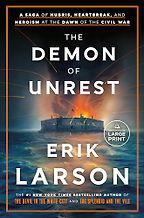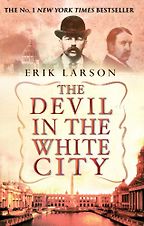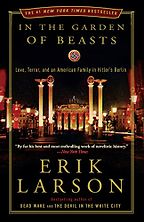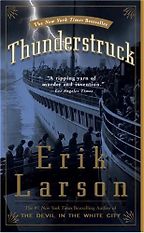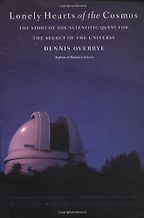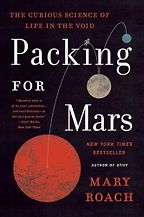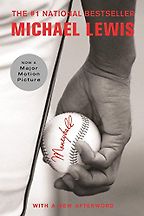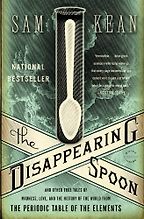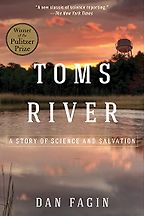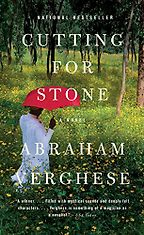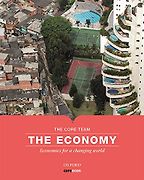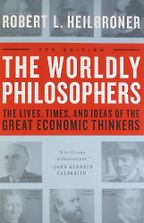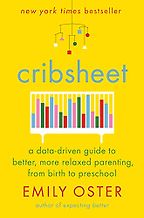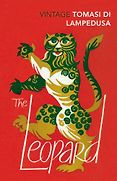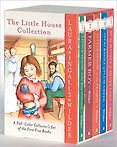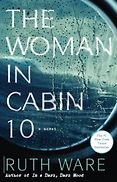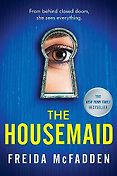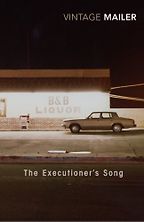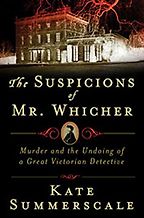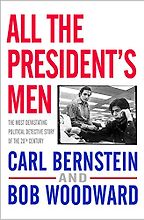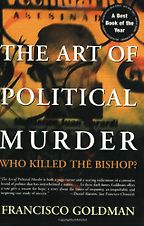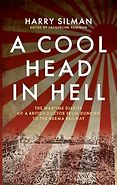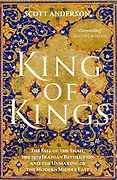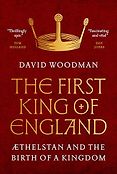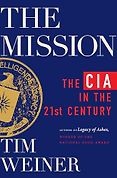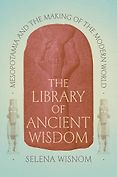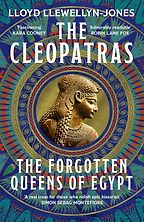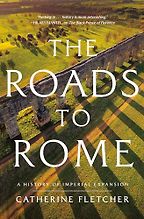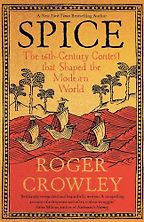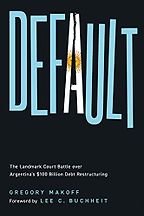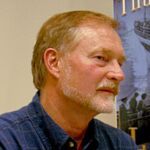
Books by Erik Larson
Erik Larson is an American journalist and author of award-winning nonfiction books.
“Larson just has a wonderful eye for detail. And he has a way of showing how a crime is not an isolated incident but part of the larger fabric of society.” David Grann, talking about The Devil in the White City.
“Larson’s books often bring two narratives together, say a crime story and a technical story.” Timothy Jorgensen on the best books on radiation.
“It’s about the period of American history between Abraham Lincoln’s election and the beginning of the American Civil War. (Note that in the UK, the book’s subtitle is: ‘Abraham Lincoln and America’s Road to Civil War’: this is not a story we are as familiar with on this side of the Atlantic).” Read more...
Notable Nonfiction Books of Mid-2024
Sophie Roell, Journalist
“It is an astonishing story about one of the earliest known and most infamous serial killers in the United States—a guy calling himself Doctor Holmes. It takes place during the 1890s and there are these two parallel stories woven together. One is the construction of the Chicago Fair of 1893—this great World Fair, and all the marvel and wonder and engineering and ingenuity and innocence involving the construction. But there is also this really brutal psychopathic serial killer plotting and using the Fair to lure young women to this house of horror, this chamber that he has built in the basement of a Bates’ Motel type place. It is a classic story of good and evil playing out side by side.” Read more...
David Grann, Journalist
“At a time of increased danger of totalitarianism in the U.S., reading a history of an insider’s view of its growth in Germany in the 1930s gives a good perspective on our contemporary problems, as well as being fascinating history and biography in its own right.” Read more...
The Best Economics Books to Take on Holiday
Daniel Hamermesh, Economist
“Thunderstruck is set just before the First World War. Larson combines a true-life murder mystery—a London doctor named Harvey Crippen murders his wife and buries her body in the basement—with the development of radio by the Italian inventor Guglielmo Marconi. It’s hard to see the connection between those two things and I’m not going to be a spoiler for people who want to read the book, but in the end he brings those two stories together. I chose this book because radio waves are a type of radiation, and I appreciate how Larson weaves technical information about radio waves into the story of Marconi’s life. He brings Marconi to life and helps readers to understand what his achievements were and why they were scientific breakthroughs.” Read more...
Timothy J. Jorgensen, Biologist
“That is exactly right – the Galveston Hurricane in 1900. It killed thousands of people. I was just thinking after this latest round of tornadoes what a storm-torn continent we are. But that was the worst of them. There has never been a hurricane like that to hit the United States and essentially to remove a community, destroy a generation living there. Isaac Cline was the name of the climatologist who was responsible for trying to forecast the storm. I mean we are not good at forecasting storms now but back then the whole concept of predicting storms was incredibly new and poorly understood. And so Isaac called the storm wrong. About 8,000 people, including his wife, died in the hurricane. Erik Larson uses this story, in part, as a way of exploring the evolution of an essential science.” Read more...
The best books on Science in Society
Deborah Blum, Science Writer
Interviews where books by Erik Larson were recommended
The best books on Science in Society, recommended by Deborah Blum
The Pulitzer prize-winning writer Deborah Blum says science is too important to be left for the scientists. She recommends books that show how much it matters in our daily lives.
-

1
The Emperor of All Maladies: A Biography of Cancer
by Siddhartha Mukherjee -

2
Thunderstruck
by Erik Larson -

3
Moneyball
by Michael Lewis -

4
The Disappearing Spoon: And Other True Tales of Madness, Love, and the History of the World from the Periodic Table of the Elements
by Sam Kean -

5
Toms River: A Story of Science and Salvation
by Dan Fagin
The best books on Radiation, recommended by Timothy J. Jorgensen
The best books on Radiation, recommended by Timothy J. Jorgensen
Public understanding of radiation needs to improve if people are to properly assess its benefits and risks argues author and academic, Timothy Jorgensen. From the discovery of radio to a cancer cluster in New Jersey, he chooses highly readable books illuminating different aspects of radiation.
The Best Economics Books to Take on Holiday, recommended by Daniel Hamermesh
In this latest book, Spending Time, distinguished labour economist Daniel Hamermesh looks at how we spend time, our ‘most valuable resource.’ Here he suggests books worth spending your valuable time on this holiday, including an introductory economics textbook.
Books Becoming Movies in 2025
As a way of choosing books, selecting those that are being made into movies should be a good way to go. Why spend millions bringing a book to the screen unless it has an unusually spellbinding plot or is a particularly wonderful evocation of a time and place? Below are some of the books film directors have seen worthy of turning into movies in 2025.
The Best True Crime Books, recommended by David Grann
True crime books can be all too easily chalked up as a genre of grisly murders and cheap, voyeuristic thrills—but to do so would be to overlook compelling evidence to the contrary. David Grann, whose true crime book revisits long-forgotten, or concealed, crimes in the Osage community of Oklahoma, raises the bar with examples of true crime books rich in historical discovery, literary merit and the kind of political inquiry these murky times are calling for.
-

1
A Cool Head in Hell: The Wartime Diaries of a British Doctor from Dunkirk to the Burma Railway
by Harry Silman & Jacqueline Passman -

2
King of Kings: The Fall of the Shah, the 1979 Iranian Revolution and the Unmaking of the Modern Middle East
by Scott Anderson -

3
The First King of England: Æthelstan and the Birth of a Kingdom
by David Woodman -

4
The Mission: The CIA in the 21st Century
by Tim Weiner -

5
The Library of Ancient Wisdom: Mesopotamia and the Making of the Modern World
by Selena Wisnom -

6
The Devil Reached Toward the Sky: An Oral History of the Making and Unleashing of the Atomic Bomb
by Garrett Graff
New History Books
New History Books
It’s a golden age for historical writing, as well-researched and sometimes quite specialist books by historians are written in an engaging style for a broad audience. History books out in recent months range from ancient Assyria to the CIA in the 21st century.
-

1
The Cleopatras: The Forgotten Queens of Egypt
by Lloyd Llewellyn-Jones -

2
The Roads to Rome: A History of Imperial Expansion
by Catherine Fletcher -

3
Spice: The 16th-Century Contest that Shaped the Modern World
by Roger Crowley -

4
The Demon of Unrest: A Saga of Hubris, Heartbreak, and Heroism at the Dawn of the Civil War
by Erik Larson -

5
Default: The Landmark Court Battle over Argentina's $100 Billion Debt Restructuring
by Gregory Makoff
Notable Nonfiction Books of Mid-2024, recommended by Sophie Roell
Notable Nonfiction Books of Mid-2024, recommended by Sophie Roell
From a dynasty that ruled ancient Egypt to the 1986 space shuttle disaster, from the fight to get rich from spices in the 16th century to making billions from bankrupt countries in the 21st century, Five Books editor Sophie Roell gives an overview of the new nonfiction books that have appeared since April.
